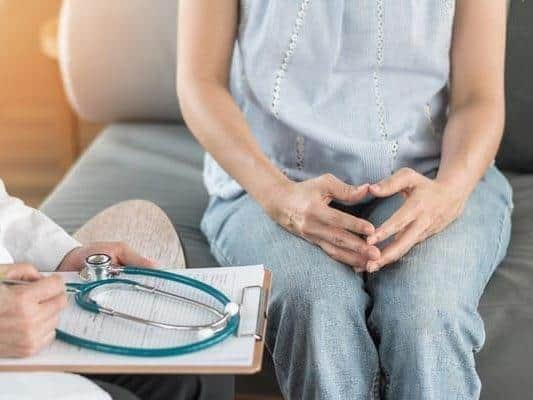Women with learning disabilities far less likely to receive cervical screening in Leeds
and live on Freeview channel 276
NHS Digital data shows that of 207 women with registered learning disabilities who were eligible for a cervical screening in the NHS Leeds CCG area, just 68 received the health check in 2019-20.
That's an uptake of 33 per cent, compared to 69 per cent among eligible women who did not have a disability.
Advertisement
Hide AdAdvertisement
Hide AdHowever, the true number of women who were both eligible for their screening and who received a test may be higher, as only a small proportion of patients in the CCG area were covered in this data.


Cervical cancer charity Jo's Trust says a lack of accessible information for people with disabilities and awareness among some healthcare professionals are just some of the potential reasons fuelling low uptake nationally.
A spokesperson for NHS Leeds Clinical Commissioning Group said: "As part of our ongoing work to address health inequalities, the CCG has prioritised healthcare for people with learning disabilities.
"A vital part of this work is the annual health check. This includes a physical check-up, blood and urine tests, a discussion about staying well, checking on any long term conditions and also checking that vaccinations and screening – including cervical screening – are up to date.
Advertisement
Hide AdAdvertisement
Hide Ad"We recognise that for people with a learning disability, uptake is generally low for all screening programmes and is most marked in cervical screening.
"We are working with health and care colleagues from a range of NHS, council, learning disability and cancer organisations so that we can improve the support, communication and training available for care providers, patients and families.
"In addition to cervical screening tests, everyone on a GP's learning disability register should be invited to book a health check every year. The checks are really important as they can uncover hidden health conditions that need to be treated.
"The pandemic has resulted in some reluctance to have these checks, but we’d encourage everyone to make an appointment when they’re invited. Initial consultations will usually be by phone or video. If patients are stable and well, physical checks may be postponed but a face to face appointment will be arranged if necessary. "
Advertisement
Hide AdAdvertisement
Hide AdWomen aged 25 to 49 are invited for cervical screening every three years, while those aged 50 to 64 receive invitations every five years.
Cervical screening requires a test that looks for changes in the cells of the cervix which could develop into cancer.
A small sample of cells is taken from the cervix using a soft brush.
The figures exclude smear tests which were inadequate, meaning the cells could not be read properly to give a result.
Advertisement
Hide AdAdvertisement
Hide AdAcross England, only 34 per cent of women with learning disabilities received the potentially life-saving health check last year, compared to 72 per cent of other women who were eligible.
Ciara Lawrence, who has a learning disability and is a passionate campaigner for charity Mencap, said many women with learning disabilities avoid arranging a screening due to a lack of prior knowledge on the subject.
"There is not enough accessible information about smear tests out there," she said.
"We want women with learning disabilities to feel that getting a screening isn't scary.
Advertisement
Hide AdAdvertisement
Hide Ad"I also think more women would want to attend if reasonable adjustments were made."
Ciara, who is also an ambassador for Jo's Trust, has often spoken out about her positive experience of getting a cervical screening after putting the health check off for a long time.
She added: "When I was 25 I didn't feel it was right for me, I was scared and fearful. I was in a relationship but I didn't feel like I was ready.
"Then in 2018, a family member died very young from cancer. She was 48, which is no age. It made me feel that I wanted to get my smear test.
